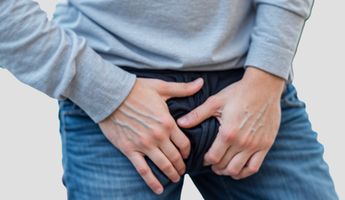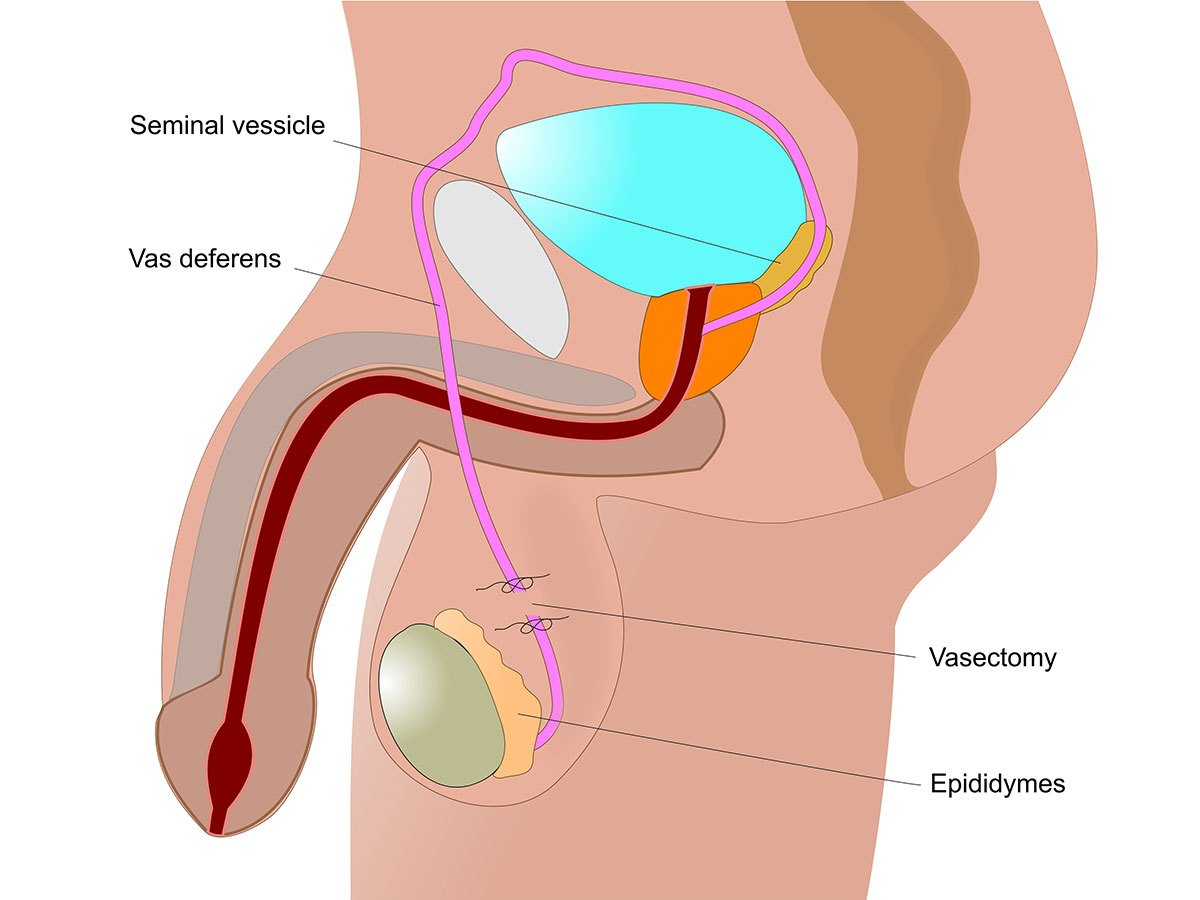Vasectomy in Belgium
Search and Compare the Best Clinics and Doctors at the Lowest Prices for Vasectomy in Belgium

Find the best clinics for Vasectomy in Belgium
No pricing info available
Russian Federation offers the best prices Worldwide
Price: $ 275
From 103 verified reviews
alain touillet, 19 September 2020
perfect alleen beter de afspraken respecteren worden heel vaak verlegt
From 103 verified reviews
Adam Soverg, 16 September 2020
Медevery medical worker with whom I happened to be a patient in this hospital is a professional in his field.
From 44 verified reviews
dora de Wilde, 21 March 2020
Optimal care, located in an oasis of green. You will relax there, even when you are sick ...
From 42 verified reviews
Mark Henderickx, 04 April 2020
After a fall with a bicycle on a fast, friendly, adequate help.Top team, tnx Marcus Henderickx
Antwerp Hospital Network ZNA, located in Lindendreef, Antwerp, Belgium offers patients Vasectomy procedures among its total of 217 available procedures, across 23 different specialties. Currently, there's no pricing information for Vasectomy procedures at Antwerp Hospital Network ZNA, as all prices are available on request only. There is currently a lack of information available on the specialists practicing at the Hospital, and they are not accredited by any recognized accreditations institutes
- Home
- Belgium
WHY US?
At Medijump, we're making medical easy. You can search, compare, discuss, and book your medical all in one place. We open the door to the best medical providers worldwide, saving you time and energy along the way, and it's all for FREE, no hidden fees, and no price markups guaranteed. So what are you waiting for?

Free

Best Price

Widest Selection

Risk-Free
What you need to know about Vasectomy in Belgium

Vasectomy, sometimes referred to as male sterilization, is a form of birth control for men to prevent pregnancy. The procedure blocks the supply of sperm to the semen when men ejaculate. Men who undergo this procedure can still experience orgasm and ejaculate.
It acts as a form of permanent birth control, preventing sperm from reaching the semen, thus eliminating the chance of pregnancy.
What does a Vasectomy Procedure Involve?
Vasectomy is performed under local anesthetic, meaning that you will be awake but you will not feel anything. Your doctor will remove and seal the tubes (vas deferens) that carry sperm from your testicles. Once the tubes have been cut, your sperm cannot reach your semen or leave your body anymore.
How Long Should I Stay in Belgium for a Vasectomy Procedure?
You can leave the hospital on the same day of the procedure, but you will need to stay in Belgium for at least 2 to 4 days. During your stay, you will need to attend hospital check-ups. If your doctor does not use dissolving stitches, removal of stitches will take place during the check-up.
What's the Recovery Time for Vasectomy Procedures in Belgium?
Rest for at least 24 hours after the procedure and avoid physical activities, such as exercise and sexual intercourse, for around a week. You should be able to go back to work in 3-5 days.
What sort of Aftercare is Required for Vasectomy Procedures in Belgium?
There is no special diet you need to follow and do not have unprotected sex until you have ejaculated at least 15 to 20 times. Once you have had 15 to 20 ejaculations, you can undergo a follow-up test with your local doctor to examine if your semen is free of sperm.
What's the Success Rate of Vasectomy Procedures in Belgium?
Vasectomy is almost 100% effective. Unsuccessful vasectomy happens when the tubes re-join, but it is very rare. Risks and side effects are very uncommon, but if they do happen, they usually include infection, inflammation, bruising, and swelling.
Are there Alternatives to Vasectomy Procedures in Belgium?
There is currently no alternative for male sterilization that is as effective as a vasectomy. The current best alternative for men is to use a condom during sexual activities or to ask the female partner to use birth control.
What Should You Expect Before and After the Procedure
Before the procedure, you need protection to avoid unwanted pregnancy. After the procedure, you no longer need any form of protection as your semen is free of sperm. However, the procedure will not protect you from any sexually transmitted infections.
Whilst the information presented here has been accurately sourced and verified by a medical professional for its accuracy, it is still advised to consult with your doctor before pursuing a medical treatment at one of the listed medical providers
No Time?
Tell us what you're looking for and we'll reachout to the top clinics all at once
Enquire Now

Popular Procedures in Belgium
Prices Start From $500

Prices Start From $2,473

Prices Start From $683

Prices Start From $322

Recommended Medical Centers in Belgium for Vasectomy

- Interpreter services
- Translation service
- Religious facilities
- Medical records transfer
- Medical travel insurance
- Health insurance coordination
- TV in the room
- Safe in the room
- Phone in the room
- Private rooms for patients available

- Interpreter services
- Translation service
- Religious facilities
- Medical records transfer
- Medical travel insurance
- Health insurance coordination
- TV in the room
- Safe in the room
- Phone in the room
- Private rooms for patients available

- Interpreter services
- Translation service
- Religious facilities
- Medical records transfer
- Medical travel insurance
- Health insurance coordination
- TV in the room
- Safe in the room
- Phone in the room
- Private rooms for patients available

- Interpreter services
- Translation service
- Religious facilities
- Medical records transfer
- Medical travel insurance
- Health insurance coordination
- TV in the room
- Safe in the room
- Phone in the room
- Private rooms for patients available

- Interpreter services
- Translation service
- Religious facilities
- Medical records transfer
- Medical travel insurance
- Health insurance coordination
- TV in the room
- Safe in the room
- Phone in the room
- Private rooms for patients available

- Interpreter services
- Translation service
- Religious facilities
- Medical records transfer
- Medical travel insurance
- Health insurance coordination
- TV in the room
- Safe in the room
- Phone in the room
- Private rooms for patients available
Vasectomy in and around Belgium
Belgium is one of the smallest and most densely populated countries in Europe and has some of Europe’s finest cuisine, including the creamiest chocolates and a wide variation of beers. In addition, it is home to extensive beaches, postcard-worthy dunes, historic cities, and beautiful countryside, with belfries, castles, and carnivals. Belgium has enjoyed a growing reputation for being excellent medical tourism as well as the country boasts immaculate clinical standards. The medical centers in the country offer a wide range of specializes treatments, short waiting time, highly-trained medical professionals, and considerably lower medical costs. Orthopedics and heart surgery are the most sought after procedures in Belgium.
Popular Parts of Belgium
Brussels is the capital of Belgium, as well as home to European Union official seats and NATO headquarters. Here, visitors can see Europe’s grandest squares, visit the beloved statue of a little boy peeing into a basin (Manneken Pis), explore Musées Royaux des Beaux-Arts, and admire the magnificent Grand Palace. Bruges, a pickled Gothic city, is also worth a visit. The key attractions in the city are the 14th-century town hall, the Cathedral of the Holy Savior, and the Belfry Tower. Other popular cities include Antwerp and Ghent. While Antwerp is famous for its fashion and excellent museums, Ghent is best known for its historic quarter and stunning Van Eyck altarpiece in its colossal cathedral.
Weather and Climate in Belgium
Belgium has four distinct seasons. Summer in the country is relatively short, starting in July and ending in August. The season is warm, with bearable heat and some intermittent rain. Winter comes in November and extends until March. It can get rather wet and chilly during this season, with an average temperature of around 3 - 7°C. Spring (April – June) and autumn (September – October) are generally nice and warm, with an average temperature of around 10 - 15°C.
Getting around in Belgium
The main international airport in Belgium is Brussels Airport. It serves flights to many major cities around the world, including Copenhagen, Doha, London, New York, Atlanta, Casablanca, and Bangkok. Since Belgium is a small country, there are no domestic flights. The public transport system in the country is extremely well-organized and reasonably priced. The best way to get around the country is by train. The trains are affordable, fast, frequent, very punctual, and have a comprehensive network of lines. Buses tend to be used in conjunction with train services, so you will likely need a train-bus combination when traveling, especially to rural areas. Inside cities, the transport systems are centered on buses, but there are also metro and trams in Brussels and Antwerp. Taxis are plentiful in all cities and ensure to hire metered official taxis, which have standard fares.
Tourist Visas in Belgium
Belgium is part of the Schengen Area, so nationals of EU/EEA countries do not need a visa to visit the country regardless of their length of stay or purpose of travels. Citizens of 62 countries, including Canadian, Australian, and US nationals, can stay in the country without a visa for up to 90 days. Belgium Visa for Medical reasons is available for people who need to obtain medical care in the country.
Additional Information
- Local Currency: Belgium adopted the euro (€) in 2002. The exchange rate from US$1 is around €0.85 (€1 is around US$1.17).
- Money & Payments: All towns and cities have cashpoints that are compatible with international banking networks. Credit Cards, particularly MasterCard and Visa, are widely accepted in major cities and towns. Always have some cash on you when traveling to smaller villages. Tipping is not standard practice but appreciated.
- Local Language: Dutch, German, and French are the official languages in Belgium. English is widely spoken.
- Local Culture and Religion: About 65% of the population is Christian, with a large portion adhere to Roman Catholicism. There are also some small communities of Jewish, Muslim, and Buddhist.
- Public holidays: Some important public holidays in Belgium include New Year’s Day, Easter Monday, Ascension Day, Whit Monday, Independence Day, and Christmas Day.
Popular Searches
- Plastic Surgery in Thailand
- Dental Implants in Thailand
- Hair Transplant in Thailand
- Breast Augmentation Thailand
- Gastric Sleeve in Thailand
- Gender Reassignment Surgery in Thailand
- Laser Hair Removal in Bangkok
- Botox in Bangkok
- Dermatology in Bangkok
- Breast Augmentation in Bangkok
- Coolsculpting in Bangkok
- Veneers in Turkey
- Hair Transplant in Turkey
- Rhinoplasty in Turkey
- Stem Cell Therapy in Mexico
- Rhinoplasty in Mexico
- Liposuction in Mexico
- Coolsculpting in Tijuana
- Rhinoplasty in Korea
- Scar Removal in Korea
- Gastric Sleeve in Turkey
- Bone Marrow Transplant in India
- Invisalign in Malaysia
- Plastic Surgery in the Dominican Republic
- Tummy Tuck in the Dominican Republic
- Plastic and Cosmetic Surgery in Poland
- Rhinoplasty in Poland
- Hair Implant in Poland
- Dental Implants in Poland
- IVF in Turkey




